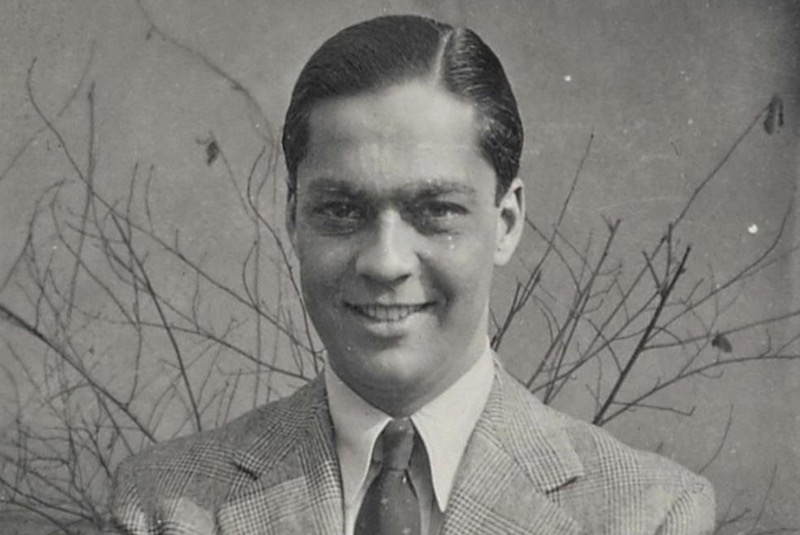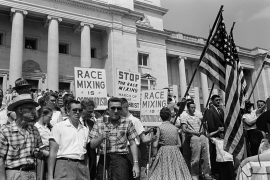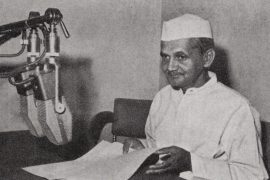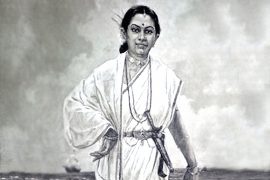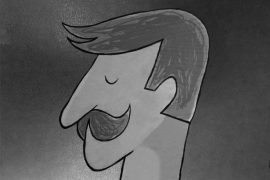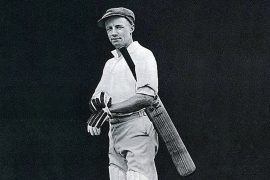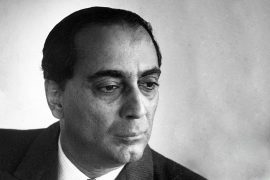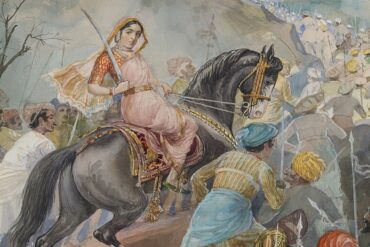There once was a person called Starkie
Who had an affair with a darkie;
The result of his sins
Was quadruplets, not twins,
One black, one white, and two khaki.
The derogatory rhyme above bothered Cedric Dover, the Eurasian (or Anglo-Indian) biologist. Dover believed racial equality can be achieved only by recognition without discrimination — not by ‘integration’ or ‘segregation.’
The author of the critically acclaimed book Half-Caste, Dover dedicated his life to the study of race and advocated racial solidarity across the globe. While Dover considered Half-Caste to be ‘an angry period piece which should not be reprinted,’ his book became very influential and was used to advocate reforms in the United States justice system.
Case in point: a 1948 law suit in which a Mexican-American woman, named Andrea Perez, applied for a marriage license from the County Clerk of Los Angeles. Perez, who identified as white, wanted to marry Sylvester Davis, a man of African-American descent. However, the court refused to grant her permission based on California Civil Code, sections 60 and 69, which stated:
All marriages of white persons with Negroes, Mongolians, members of the Malay race, or mulattoes are illegal and void” [and] “no license may be issued authorising the marriage of a white person with a Negro, mulatto, Mongolian or member of the Malay race.
Perez took the case to the California Supreme Court; the court agreed to strike down the law as unconstitutional by a verdict of four to three. The judgment presented by J. Carter quoted Dover’s Half-Caste:
Perhaps our Neanderthal ancestors arose from a mixture between ape-men of the Ice Age. Perhaps our Neolithic prototypes emerged from relations between the Aurignacian invaders of Europe and the local Neanderthals. We shall be content with the knowledge that miscegenation has influenced human evolution from the earliest times, that there has not been a pure race of our species for at least ten thousand years.
Born in Calcutta, on 11 April 1904, to an English father and Indian mother, Dover faced discrimination from both sides; Englishmen and Indians treated miscegenation with disgust. While the community of mixed or “colored” people grew in old colonial cities like Madras and Calcutta, they were stuck between the position of the colonisers and the colonised.
Dover grew up reading the works of various renowned African-American intellectuals who advocated racial equality and moulded him to champion the cause of “colored” people fighting against exclusion and oppression.
After graduating from St Joseph’s College, Calcutta, and Medical College, Calcutta, Dover joined the Zoological Survey of India as a temporary assistant in charge of entomology. On the side, he helped an anthropometric study of the Eurasian community by writing and editing several scientific articles for the Eurasian magazine, New Outlook.
After studying Zoology and Botany at the University of Edinburgh and Entomology at the Natural History Museum in London, he returned to India and conducted various environmental studies.
He moved to London in 1934, and his works shifted from Zoological subjects to the subject of race. At the age of 33, he published his book Half-Caste, which celebrated the richness and the potential of mixed races. The book drew inspiration from W.E.B Du Bois, an African-American thinker whose ideals resonated with Dover and led to a lifelong friendship.
Du Bois’ thesis, The problem of the twentieth century is the problem of the color line—the relation of the darker to the lighter races of men in Asia and Africa, in America and the islands of the sea, influenced several works of racial literature.
The success of Half-Caste raised Dover as a giant in the literature of colored and colonial people; however, his later works began addressing minorities across the globe. His association with African-American activists like W.E.B Du Bois, Langston Hughes, Claude Mackay, and Paul Robeson expanded the boundaries of his experiences with race.
Dover was acquainted with Jawarharlal Nehru in 1929 and was a firm supporter of India’s independence movement. After India became an independent nation, Dover wrote to the new Prime Minister to press on racial equality. He hoped Nehru would strengthen the ties of colored solidarity between Indians and African Americans. While Nehru acknowledged his support for African-American struggles, he was tied under the statute of diplomacy.
In 1947, while addressing the Indian ambassadors in the U.S. and China, Nehru said, ‘In the U.S.A. there is the Negro problem, our sympathies, are entirely with the Negroes’; however, the representatives of India were strictly instructed to ‘avoid any public expression of opinion which might prove embarrassing or distasteful to the Government or people of the country where they serve.’
As post-colonial nations failed to uphold equal rights for minorities, Dover shifted his cause from racial unity to achieving equal human rights. His work began to recognise injustice across the globe and urged minorities and mixed races to unite against it.
During his time in the U.S., Dover had taken great interest in the subject of racial injustice against African Americans, American Indians, people of Asian and Latin American descent, and the Jewish communities. His last book, American Negro Art, is perceived as ‘a product of the transnational collaboration between the African American community and the worldwide struggle against racism.’
Cedric Dover died on 01 December 1961 in Britain. A eulogy from his friend and his mentor, Du Bois relays his struggle:
“He was born in Asia of a well-born Englishman and a low caste Indian woman. In Asia, missionaries educated him to hate heathen, worship the virgin and obey whoremongers. He finished education in Europe and became a well-bred Englishman, save that he never of course really belonged and never earned a living as a gentleman. He came to the United States, land of the free, and found no freedom for brown folk.
Throughout his life, his works spoke to minorities across the world. Dover wished for racial equality, but with additional recognition of racial minorities without negating their experience with color blindness. The approach derived from experiences of his own life where he, unlike other Eurasians who used their origin to pass as white, asserted the racial identity of a ‘colored’ person – ‘both racial and anti-racial at the same time.’”
-30-
Copyright©Madras Courier, All Rights Reserved. You may share using our article tools. Please don't cut articles from madrascourier.com and redistribute by email, post to the web, mobile phone or social media.Please send in your feed back and comments to editor@madrascourier.com

